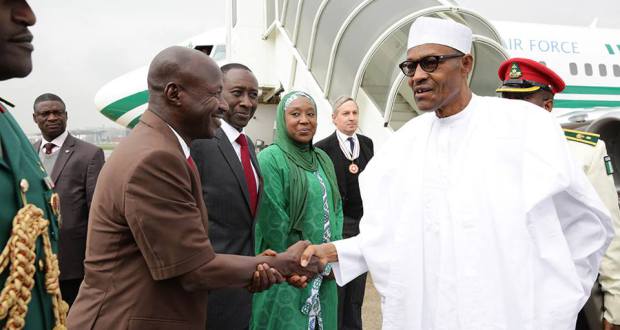The Economic and Financial Crimes Commission, EFCC, has accused Governor Ayodele Fayose of Ekiti State of diverting the N680 million bailout funds meant for the payment of salaries and pension of civil servants in the state.
The amount has been traced to a fixed account which the EFCC claims yields N6 million monthly.
The discoveries informed the arrest of the state’s commissioner of finance and the accountant general by the commission.
Both officials, who were released on Wednesday, have made commitment to “assist the commission with relevant documents before they were granted administrative bail and ordered to report back in two weeks.”
According to a top source in the commission, many facts came to light in the course of investigating alleged misapplication of the bailout funds by the Fayose administration.
One of such disclosures is the N1.7billion contract awarded to a Lebanese Company. The company moved part of the money to allegedly purchase properties for the governor.
The source added: “Investigators stumbled on evidence of diversion of funds meant for payment of state and local government employees in Ekiti State including pensioners.
“Specifically, over N600million was diverted on 25 January 2016. The funds comprising N200million from the Ekiti State Local Government Salary Account, N300million from the Ekiti State Pension Account and N180million from the Ekiti State FAAC Account were first credited into the Consolidated Revenue Account in Zenith Bank on 25 January 2016 and later transferred the same day into an account called 2015 MDG-CGS state project account domiciled in Zenith Bank.
“The analysis of the bank statement revealed that the money was later placed in a fixed deposit where it was yielding monthly interest of about N6million, at a time pensioners and workers in Ekiti State are owed months of unpaid entitlements.”
The source said that EFCC investigators are poring over documents to uncover the beneficiaries of the monthly interest on the fixed deposit.
Apart from the bailout funds, the EFCC had recently also uncovered alleged diversion of over N59.6million meant for projects under the Millennium Development Goals (MDGs) in Ekiti State by one Abiodun Agbele, who is an associate of the state governor, Mr. Ayodele Fayose.
According to EFCC investigators, the MDGs’ funds were transferred from an account in the First Bank of Nigeria(titled MDGs-CGS Local Govt) to BYKD Consult Limited which is purportedly owned by Agbele.
Documents indicated that the funds were transferred in four tranches as follows: February 18, 2015(N18, 159, 050; N15, 319,850; N11, 218, 500; and March 30, 2015—N15, 704, 325.
Upon the receipt of the funds through his account 0059177132 in Diamond Bank, Bodija, Agbele allegedly diverted these for the payment of choice vehicles from Affordable Motors.
Agbele, who is presently on trial was said to have been used as a front to launder N1.299billion for Fayose through his company called De-Privateer.
But as the EFCC operatives were probing more clues on slush funds and payment of kickback by contractors in the state, they uncovered alleged diversion of MDGs’ funds.
The Presidency had released N713.7billion as Special intervention funds to states.
The bailout was part of a three-pronged relief package to end the workers plight in most of the 36 states.
While N413.7billion represented special intervention funds, the balance of about N250billion to N300billion was a soft loan to states.
Also, following protest by states against over deductions for external debt service between 1995 and 2002, President Muhammadu Buhari had approved the release of N522.74 billion (first tranche) to states as refunds pending reconciliation of records.
Each state was entitled to a cap of N14.5 billion being 25% of the amounts claimed.
The second tranche of N243, 795,465,195.20 was also disbursed to states in July.
